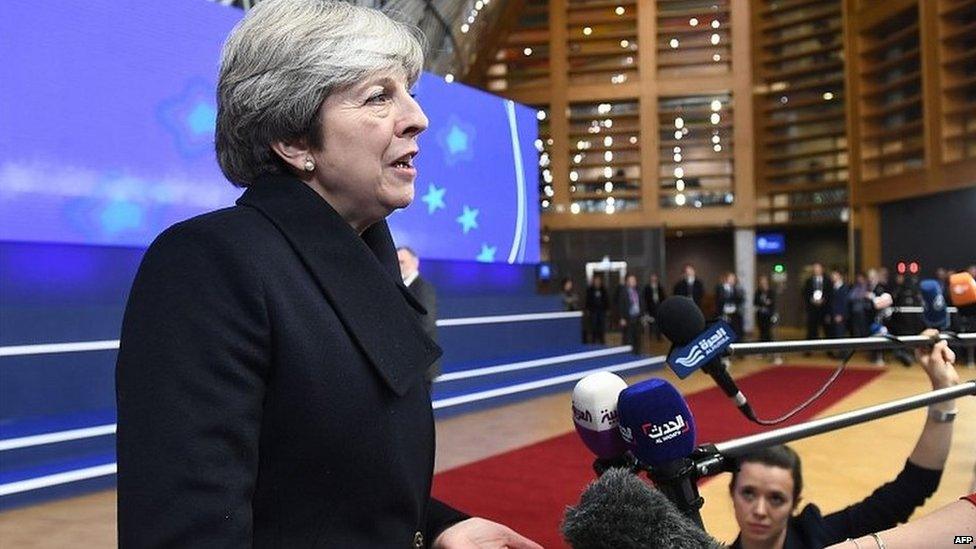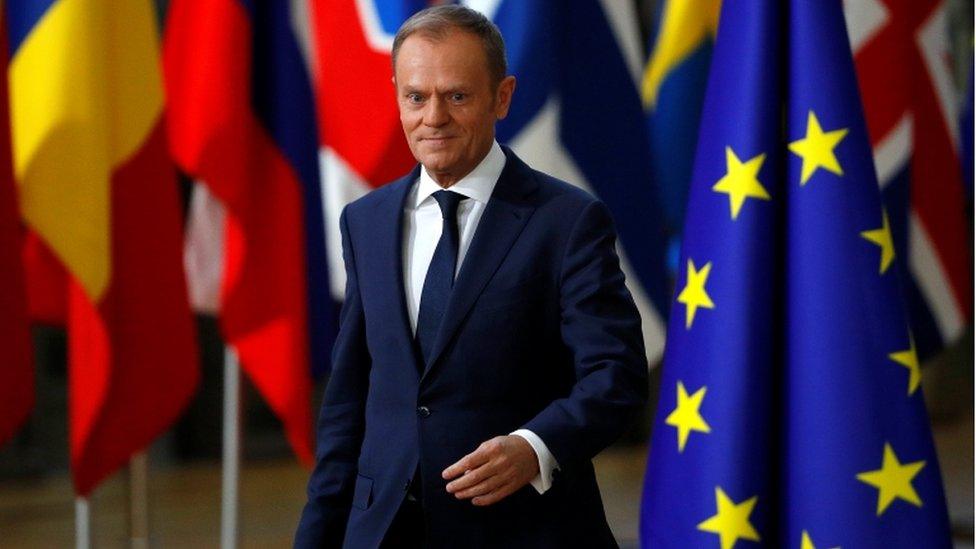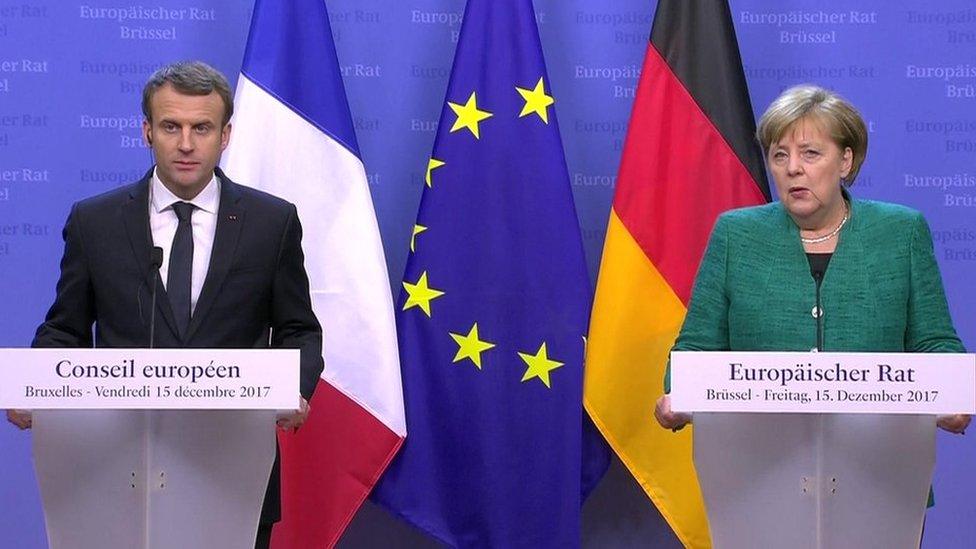Brexit talks: Why 2018 will be no easier
- Published

Theresa May earned a polite smattering of applause
From a British point of view the best moment of Brexit so far has come and gone.
They even made it known they'd given Theresa May a round of applause after she made a short speech pledging her commitment to a smooth Brexit.
But Brussels is still Brussels and the UK's negotiators will hardly have time to breathe the sigh of relief to which they privately feel entitled before the questions and the caveats began to crop up.
First the round of applause itself - a polite smattering, it was suggested, rather than a thunderous standing ovation.
And then of course there is the more important question of what happens next.
The UK's chief Brexit negotiator, David Davis, may favour something of a swashbuckling approach to these difficult moments, but the EU favours a disciplined, structured, rigidly-controlled process more akin to buying a house than writing a speech.
So we know that the EU 27 will sit down after the holidays to discuss what they want from a transition period for the UK after Brexit.
Theresa May says agreement is "important step" on the road to Brexit
The president of the EU Council, Donald Tusk, put it like this: "As for the framework for future relations, it is now time for internal EU 27 preparations and exploratory contacts with the UK to get more clarity on their vision.
"On that basis we should adopt guidelines and start negotiations next year. I trust that the unity on the EU side will continue."
The transition (the UK prefers the phrase "implementation phase") will be a period after the UK has ceased to be a member state on 29 March 2019 but before it begins to function entirely outside the union.
The period is likely to last two years (it will certainly be for a limited time) and we know that the EU will insist that the UK continues to follow all the rules of the customs union and single market.
In effect it will seem pretty much as though the UK is still a member state with the crucial difference that it won't have a vote or a voice in EU decisions.
The UK may not be happy with that. One member of the cabinet, Michael Gove, has talked about the possibility of the UK leaving the Common Fisheries Policy early and Foreign Secretary Boris Johnson has argued that the UK could be bound during a transition by all the EU's existing rules but not by any new ones passed after Brexit day.

Donald Tusk has suggested a final deal by March 2019 is possible but could prove "dramatically difficult"
Here's the problem for the UK.
Any time you spend haggling over the terms of transition will in effect be subtracted from the time available to discuss the overall future of EU-UK relations, including trade, security and defence.
And businesses, banks and the city will be putting the government under huge pressure to get the transition sorted in order to give them the certainty they need to plan for the future.
Sometime later next year - let's say in March - the EU will start to plan its strategy for negotiating that overall future relationship.
All it knows for sure so far is that the UK has said it's leaving both the Single Market and the Customs Union - expect a clamour for the UK to spell things out in much greater detail to grow in the weeks after the Christmas holidays.
The political backdrop to all of this is that the EU 27 is now resigned to Brexit - it's generally accepted now that it is going to happen but plenty of European politicians remain hurt and mystified by what they regard as Britain's decision to de-couple itself from one of history's primary engines of peace and prosperity.

It looks like 2018 will be as tough for talks as 2017
Estonian Prime Minister Juri Ratas put it like this: "A divorce is always sad and always very, very difficult. Brexit was not on our priority list but it's still very much in our hearts. I am very pleased that we have achieved sufficient progress in negotiations to start discussions on our future relations."
For keen EU watchers the key phrase there is "sufficient progress" - a grimly familiar form of words that you haven't heard the last of.
Even the Phase One issues (the divorce settlement, the Irish border and citizen's rights) are not finally settled - the progress on them is "sufficient" rather than "complete", after all.
Talks on those issues will continue in the New Year and will culminate in a withdrawal agreement in which they will be enshrined in legally biding language.
The year 2017 was one of dense, tense and sometimes puzzling negotiations here in Brussels. And 2018 will be no different.
- Published15 December 2017